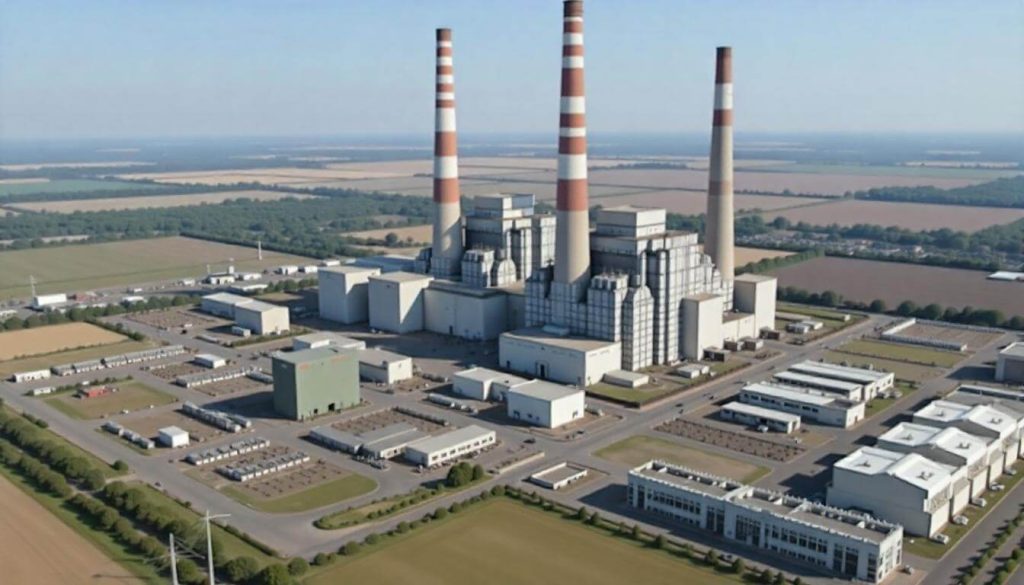Table of Contents
Adani Power, a key player in India’s power sector, has been garnering attention from investors and analysts alike. As part of the Adani Group, one of India’s largest conglomerates, the company has grown significantly in recent years. Its share price has fluctuated based on multiple factors, including market dynamics, corporate decisions, government policies, and the overall performance of the power industry. If you’re considering investing in Adani Power or simply interested in understanding its share price trends, this blog will give you a comprehensive look into the key drivers behind its performance.
1. Overview: A Dominant Force in India’s Energy Sector
Adani Power is one of the largest private sector power generation companies in India. It operates several coal-based power plants across the country and has a significant footprint in the renewable energy space as well. The company is part of the Adani Group, a diversified conglomerate with business interests in sectors such as ports, logistics, agribusiness, real estate, and energy.
It is involved in the generation, transmission, and distribution of electricity, with a strong presence in states like Gujarat, Maharashtra, Karnataka, and Haryana. The company is known for its focus on growth, which includes both greenfield and brownfield projects to meet India’s increasing energy demand.
2. Key Factors Influencing Share Price
Several factors influence the stock price of Adani Power. Understanding these dynamics is crucial for investors:
a. Power Sector Performance
The power sector plays a vital role in Adani Power’s business, and any fluctuations in the industry’s performance directly impact its share price. Factors such as fuel prices, electricity demand, and government policies can either positively or negatively influence the company’s revenues and, consequently, its stock value.
For example, an increase in coal prices or any disruption in the supply chain for fuel can lead to higher operating costs for Adani Power, which may affect its margins and share price. Similarly, if the Indian government announces favorable policies such as subsidies for renewable energy or easier regulatory norms, their stock could see an uptick.
b. Financial Performance and Earnings Reports
As with any publicly traded company, Adani Power’s financial results have a direct impact on its stock price. Strong quarterly earnings reports that exceed analyst expectations generally result in an increase in the share price. Conversely, if the company posts disappointing financial results or falls short of market expectations, its share price may decline.
Adani Power’s earnings, influenced by factors such as plant performance, fuel costs, and power tariffs, directly correlate with its stock performance. For instance, improved efficiency in its plants or the successful integration of renewable energy projects could bolster investor confidence.
c. Government Policies and Regulations
The Indian power sector is highly regulated, and government policies around power generation, pricing, and subsidies can significantly affect Adani Power’s business prospects. Policies that support clean energy initiatives or changes in coal pricing can impact the company’s profitability. For instance, the government’s push towards renewable energy and its National Electricity Plan can open up new growth opportunities for Adani Power, particularly in solar energy and wind power.
Additionally, tariff revisions and regulatory interventions at the state and central government level can affect the revenue streams for them, making it important to monitor these developments for stock price predictions.
d. Investor Sentiment and Market Conditions
Investor sentiment plays a significant role in stock price fluctuations. Broader market conditions, including global economic trends, interest rates, and market volatility, influence Adani Power’s share price as well. When there’s positive sentiment in the market, driven by strong economic growth or bullish trends in the stock market, Adani Power may see its share price rise.
Conversely, adverse conditions like an economic slowdown, high inflation, or market corrections could cause the stock to underperform. Adani Power’s share price could also be affected by changes in investor sentiment towards the Adani Group as a whole, especially in light of any corporate developments or controversies surrounding the conglomerate.
3. Recent Trends in Share Price
As of recent months, Adani Power’s share price has seen a range of fluctuations, reflecting both internal and external factors. The company’s performance during the pandemic recovery phase was crucial, as power consumption gradually increased, driving up demand for electricity.
However, fluctuations in the price of coal and regulatory pressures remained challenges for Adani Power’s financial outlook. Despite these challenges, the company continued to pursue strategic initiatives to increase its renewable energy capacity, which has had a positive effect on investor sentiment.
In addition, the broader performance of the Adani Group stocks tends to correlate with Adani Power’s share price. When other businesses within the Adani Group show growth or strategic advancements, Adani Power often benefits from this positive momentum, influencing its share price performance.

4. Strategic Moves: Renewables and Expansion
One of the most significant drivers of their future growth is its focus on renewable energy. The company has been aggressively investing in clean energy sources such as solar, wind, and hydropower. It aims to become one of the largest renewable energy producers in India and has set ambitious targets to scale up its green energy capacity.
These strategic moves position the company as a key player in India’s transition to a cleaner energy future. As India increases its reliance on renewable sources, companies like Adani Power, which are expanding their renewable portfolio, may see an increase in investor confidence and a positive impact on their share prices.
Additionally, their expansion into global markets and potential partnerships with international players may further diversify its revenue streams and reduce the risks associated with domestic market fluctuations. This expansion, particularly into emerging markets with growing energy demands, could provide substantial long-term growth for the company.
5. Future Outlook and Projections for Share Price
Looking ahead, the share price of Adani Power is expected to remain influenced by a variety of factors, including:
- Sustained growth in renewable energy: As India’s energy landscape evolves, Adani Power’s focus on renewable energy projects will be a key catalyst for long-term stock growth. The company’s ability to scale its green energy portfolio will play an important role in its financial performance.
- Power sector reforms: Any regulatory changes in the power sector, such as tariff revisions or more favorable policies for private power companies, could provide a boost to Adani Power’s profitability and share price.
- Coal price volatility: Given that Adani Power operates several coal-based plants, fluctuations in coal prices will continue to be a key factor in determining its costs and margins. Investors will need to keep an eye on global coal price trends, as they can significantly impact the company’s bottom line.
- Global economic conditions: Broader economic conditions, both in India and globally, will continue to affect investor sentiment and Adani Power’s performance. A stable economic environment could see growth in electricity consumption and power demand, benefiting Adani Power.
6. Conclusion: A Stock Worth Watching
It remains one of the most intriguing stocks in India’s power sector. While its share price can be volatile, driven by factors like government policies, fuel prices, and market sentiment, its long-term prospects are tied to India’s energy growth and the company’s focus on renewable energy. For investors, Adani Power presents both opportunities and risks, making it a stock worth monitoring closely.
In 2025 and beyond, the company’s strategy of diversifying its energy portfolio and focusing on clean energy could potentially lead to increased profitability and a positive long-term growth trajectory. As always, potential investors should stay informed of market trends and corporate developments to make educated decisions about investing.

For more interesting stories: | Reliance Share Price: 5 Key Factors Driving to New Heights in 2024 | Adani Power Share Price: 5 Detailed Insights on Trends, Factors, and Future Projections |







